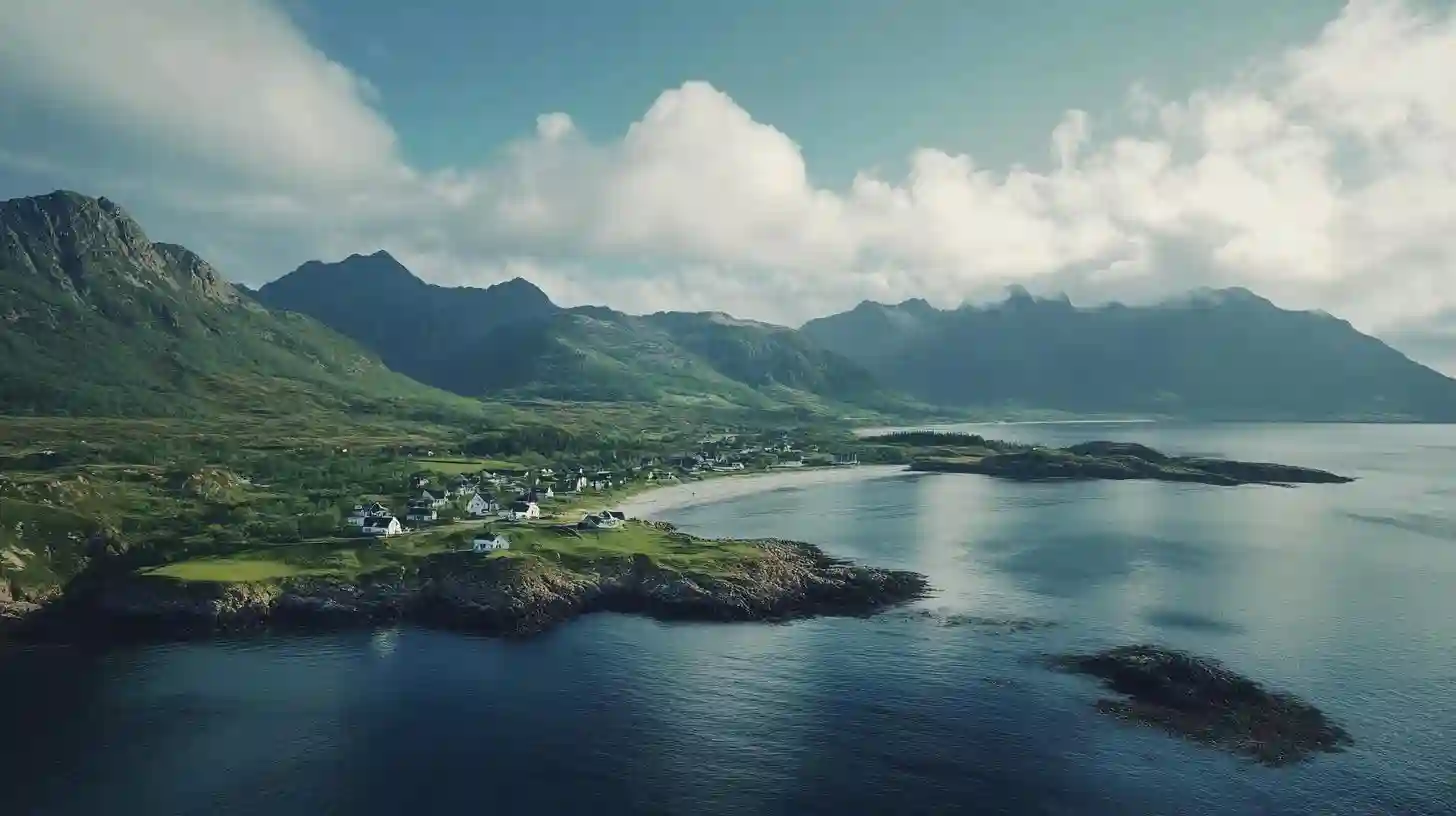
**Exploring the Economic Landscape of the Lofoten Islands**
The Lofoten Islands, situated in northern Norway, are famed for their stunning landscapes and rich cultural heritage. However, beneath this picturesque facade lies a thriving economy that extends beyond tourism. With a harmonious blend of traditional practices and modern industries, Lofoten is emerging as a vibrant economic hub.
**Fishing: The Heart of the Economy**
Fishing has long been the cornerstone of Lofoten's economy, deeply ingrained in local culture. The surrounding waters are abundant with cod, which has sustained generations of families. Known for its seasonal fisheries, particularly during the winter months when spawning stocks attract fishermen, this industry provides employment and supports a lively market for fish-based products. Traditional practices, such as the iconic rorbu cabins, also enhance tourism as visitors seek an authentic coastal experience.
**Tourism: A Growing Economic Driver**
Tourism is another significant contributor to Lofoten’s economy. The islands' breathtaking beauty—marked by jagged mountains and tranquil beaches—draws visitors from around the globe. Adventure seekers and relaxation enthusiasts alike flock to partake in outdoor activities like hiking, kayaking, and mountaineering. As a result, local businesses have expanded their hospitality offerings, providing accommodations, guided tours, and culinary experiences featuring regional delicacies. The rise of eco-tourism underscores a commitment to sustainable practices that protect the delicate environment while delivering memorable experiences.
**Artistry and Local Craftsmanship**
Art and crafts play a vital role in Lofoten's economy, with local artisans drawing inspiration from the captivating landscapes. Handmade crafts, paintings, and textiles not only reflect the talent of local creators but also the cultural narratives that connect the community with their environment. Art galleries and workshops invite tourists to participate in the creative process, enriching Lofoten's cultural fabric and generating revenue. Seasonal festivals celebrating traditional crafts and culinary arts further enhance the islands' allure, attracting visitors year-round.
**Agriculture's Contribution**
While fishing and tourism dominate, agriculture also contributes to Lofoten's economy. The islands' mild climate and fertile soil foster the growth of various crops and livestock. Local farms produce vegetables, herbs, and berries, supporting the food supply and offering fresh ingredients for restaurants and markets. This emphasis on locally sourced products deepens the connection between the land and its inhabitants.
**Modern Infrastructure and Innovation**
Recent infrastructure developments have positively transformed Lofoten's economic landscape. Improved transportation links facilitate the movement of goods and services, supporting local business growth. The introduction of digital technologies has empowered entrepreneurs to access global markets while maintaining local ties. Moreover, remote work opportunities are attracting newcomers, diversifying the labor force and infusing fresh ideas into established industries.
**Commitment to Sustainability**
Environmental sustainability is increasingly shaping Lofoten's economic identity. The community recognizes the need to balance development with preservation, leading to initiatives that promote renewable energy and waste reduction. Local businesses prioritize sustainable practices, appealing to consumers who value eco-conscious experiences without compromising the ecosystem.
**The Role of Education**
Education and skill development are vital for Lofoten's economic growth. Local educational institutions foster an entrepreneurial spirit, equipping residents with the skills needed to navigate various industries. Through vocational training and apprenticeships, the community nurtures the next generation of artisans, fishers, and tourism operators, ensuring Lofoten’s unique qualities are preserved and celebrated in an evolving economy.
The economic landscape of the Lofoten Islands interweaves tradition, innovation, and sustainability. With a solid foundation built on fishing, tourism, artistry, and agriculture, paired with a commitment to environmental stewardship, Lofoten exemplifies the potential of a community embracing its heritage while boldly stepping into the future. Visitors and residents alike are invited to explore this tapestry of life amid nature’s grandeur.
Lofoten Islands: A Thriving Economy Blending Tradition, Innovation, and Sustainability Amid Stunning Scenery
The Lofoten Islands boast a vibrant economy that harmonizes traditional fishing practices with modern tourism and sustainable initiatives, all set against breathtaking landscapes. This unique blend ensures both economic growth and environmental preservation, making Lofoten a model for communities worldwide.
Cuisine




















